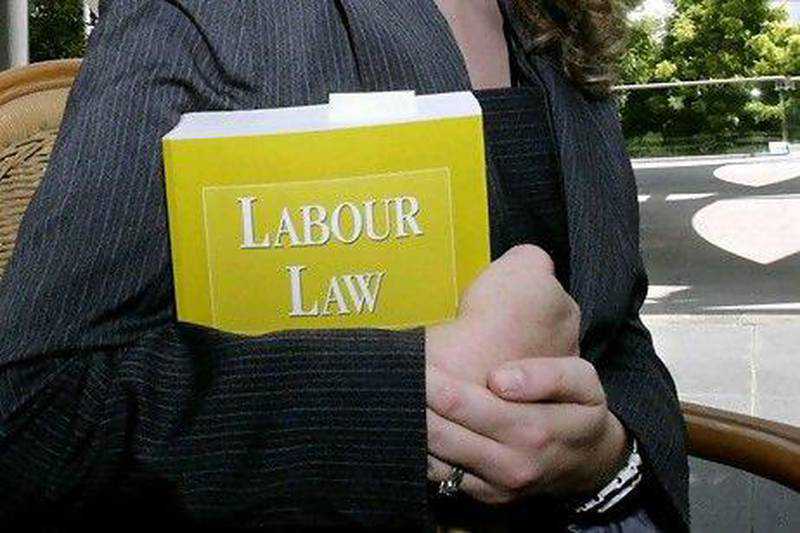'Can my employer ask me to pay compensation when I resign?'
29 August, 2021

I am working on a limited contract. I have submitted my resignation to my company and they are asking me to serve a one-month notice period and also to pay an additional 45 days' compensation. Is this legal? RD, Abu Dhabi
When anyone accepts a job and signs a contract of employment, it is important to read the paperwork and ask for clarification if any terms or conditions are unclear. The contract must specify whether the contract is for a limited period, also known as a fixed-term contract, or unlimited, which means it does not have a specific end date.
The type of contract makes a difference to the legalities when leaving a job, both on resigning and on termination. This is clearly set out in the UAE Labour Law, which applies to all private mainland companies and is also adopted by most free zones.
RD has chosen to leave his employment during the fixed period. While a limited-term contract can provide for financial compensation if the employee is terminated by the employer, there is a penalty to pay if they resign and break the agreed contract terms. Accepting a fixed-term contract means agreeing to work for the duration of the contract.
Article 116 of the UAE Labour Law states: “Should the contract be rescinded by the worker … the worker shall be bound to compensate the employer for the loss incurred thereto by reason of the rescission of the contract, provided that the amount of compensation does not exceed the wage of half a month for the period of three months or for the remaining period of the contract, whichever is shorter, unless otherwise stipulated in the contract.”
Half pay for three months is broadly equivalent to 45 days of pay and so the employer is correct in that they may apply a penalty for this amount. No employer has to apply this penalty but they can do so legally and most will to recoup the costs they incur when hiring staff.
Is value-added tax applicable if a company sold old furniture to employees? The furniture was purchased in 2017, before VAT came into effect in the UAE? Also, what if a company sold a vehicle to an employee, which it purchased from another person, and no input VAT was claimed on it at the time of the sale to the employee? LC, Dubai
These are technical VAT queries, so I contacted Gemma Nye, manager of Dubai-based Go Figure Accountancy, for her advice.
Regarding the first question, Gemma advised: “A sale of assets by a taxable entity is subject to VAT at the appropriate rate. There are some exemptions, which include the sale of land or residential properties. Also, if the sale of assets qualifies as a transfer of the business as a going concern, then this is outside the scope of VAT.”
The second question is more complex.
“The application of VAT on the sale of a vehicle used within the business depends on a number of scenarios. The VAT rate will either be a taxable supply at 5 per cent or chargeable under the profit margin scheme, depending on which scenario applies on the original purchase," Ms Nye said.
The profit margin scheme is where you charge VAT on the profit only, as per Article 29 of the Executive Regulation. For example, if you sold a vehicle for Dh100,000 and the original purchase price was Dh90,000. This means you made a Dh10,000 profit and VAT would apply to this amount, she added.
The other scenarios include:
If the vehicle was purchased before January 1, 2018, by the company and no input VAT was claimed, the further sale to the employee must be classed as taxable supply at 5 per cent;
If it was purchased by the company after January 2018, and VAT was incurred on the purchase and reclaimed, the further sale must be classed as taxable supply at 5 per cent;
If it was bought by the company after January 1, 2018, and VAT was charged on the purchase but not reclaimed. The reasons for non-recoverable input VAT are specified in Article 53 of the Executive Regulation and can include when a business vehicle is available for personal use. In this case, you have an option to charge it as taxable supply at 5 per cent or you can charge VAT under the profit margin scheme.
If it was purchased after January 1, 2018, and there is no evidence of VAT being recovered after the purchase, the further sale to the employee must be classed as taxable supply at 5 per cent;
If the car was purchased after January 1, 2018, and you have documents to prove VAT was charged on the purchase by a previous supplier, no input VAT is claimed. The further sale can be classed at 5 per cent or under the profit margin scheme.
If any business has questions or concerns about complex tax issues, they should seek paid, professional advice as making mistakes in VAT reporting can lead to fines.
Keren Bobker is an independent financial adviser and senior partner with Holborn Assets in Dubai, with more than 25 years’ experience. Contact her at keren@holbornassets.com. Follow her on Twitter at @FinancialUAE
The advice provided in our columns does not constitute legal advice and is provided for information only
Source: www.thenationalnews.com
TAG(s):
